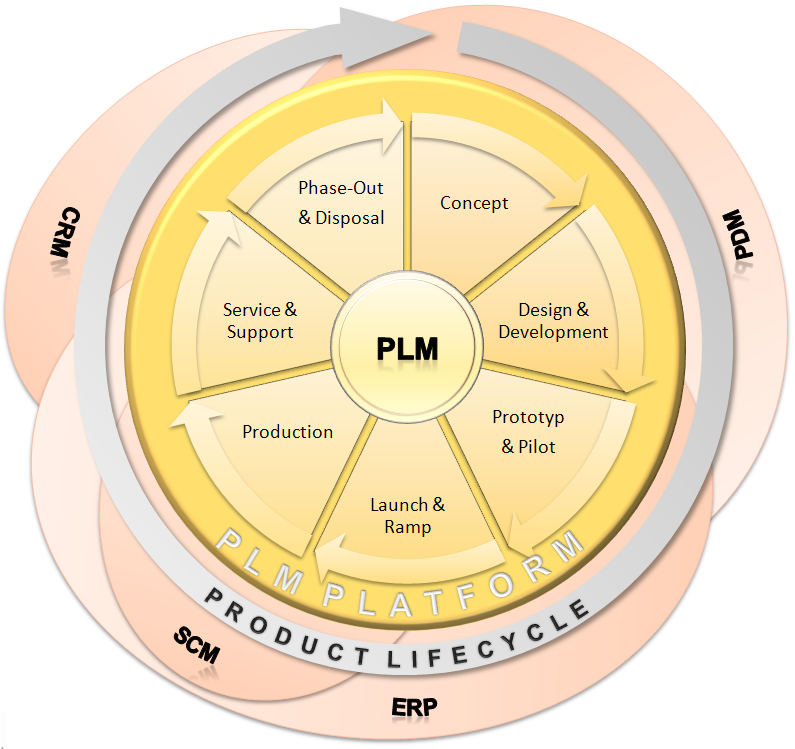Product Lifecycle Management (PLM)
- type: lecture
-
chair:
Inst. f. Informationmanagement in Engineering
Faculty for Mechanical Engineering - semester: Winter term 20/21
-
place:
Online
-
time:
Monday, 14:00-15:30
- start: 02.11.2020
- lecturer:
- sws: 2 + 1
- ects: 4
- lv-no.: 2121350
links
Content
Unit outline
- a consistent characterization of all business processes occurring during the product lifecycle process (development, production, sales, disassembly,…)
- the description of methods of PLM needed to fulfill the related business processes.
- the explanation of the most important operational information systems supporting the lifecycle (PDM, ERP, SCM, CRM systems) using the example of the software producer SAP.
Content
Aim of the lecture PLM is to outline the management and organization approach ‘Product Lifecycle Management’.
Students:
- know the management concept PLM and its aims and have the ability to emphasize the economical benefit of the PLM concept.
- know providers of PLM system solutions and are able to illustrate the current market situation.
- understand the necessity of a consistent and cross-departmental business process – starting with the portfolio planning via construction and feedback of costumer information during the utilization phase through to maintenance and recycling of the products.
- know processes and functions required to support the whole product lifecycle.
- get knowledge about the most important operational software systems (PDM, ERP, SCM, CRM) and the consistent integration of these systems.
- develop practices to implement the management concept PLM successfully.

